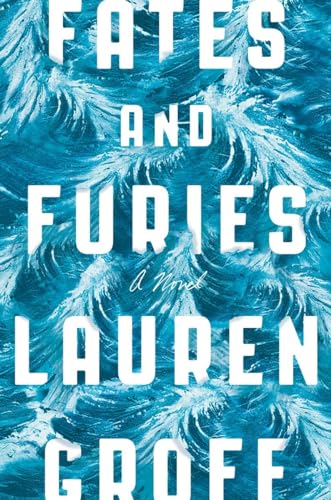Mathilde and Lotto know each other for the blink of an eye before they get married, a marriage between the handsome, talented man used to being catnip to women and the mysterious, secretive, and intriguing woman whose own talents will go unrecognized. Outsiders consider their marriage a happy and successful one but only the people inside a marriage know the truth of their private lives, what makes them tick, and the compromises they've made to be mostly content with each other. Lotto, who is the subject of the Fates portion of the book is narcissistic and stereotypical. His family is rich and when they cut him off for marrying Mathilde, he promptly becomes the most celebrated and successful playwright of his time, lauded to the moon and back. His portion of the book is a long string of sexual conquests, both from the past and with Mathilde, that do nothing for the story whatsoever. (And lamentably, their descriptions are snooze-worthy.) When the novel flips to Mathilde's section, titled Furies, the reader gets a very different view of their long marriage, a view that paints Mathilde as the more mature and intelligent, if self-effacing, half of the duo. This reimagining is not entirely successful.
The idea of a Rashoman style narrative (although with only the two perspectives rather than several) should have been interesting and effective. Instead, the book was overwrought and pretentious. There were authorial interjections (more in Lotto's section than in Mathilde's) that were clearly meant to mimic a Greek chorus but they were instead unnecessary and their information was obvious to any intelligent reader. If readers hadn't already gotten what the interjections shared, there was a lack somewhere, either in the writing or in the audience and as one of that audience, well, I know where my money is. Lotto's portion of the narrative was frequently interrupted by long, numbing excerpts from his plays, rambling reimaginings of Greek myths that break up the flow of the narrative. Ultimately, I just didn't care about Lotto, Mathilde, or the state of the lives or marriage at any point in the book. It was slow, boring, and even the secrets and the much touted twist were, in the end, just meh. This is a very polarizing book and people seem to either love it or hate it so hopefully anyone else choosing to read it will find it far more engaging than I did.







No comments:
Post a Comment
I have had to disable the anonymous comment option to cut down on the spam and I apologize to those of you for whom this makes commenting a chore. I hope you'll still opt to leave me your thoughts. I love to hear what you think, especially so I know I'm not just whistling into the wind here at my computer.